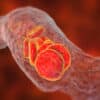When discussing the medical heroes of the COVID-19 pandemic, attention often focuses on cities like New York, Milan, or Wuhan. However, countless narratives of bravery and professionalism took shape far beyond these global hubs — in areas where healthcare professionals grappled with the virus under challenging circumstances. One such inspiring tale is that of Dr. Fariza Sultan, an infectious disease specialist hailing from Aktobe, Kazakhstan.
From Classroom to COVID Hospital
Dr. Fariza Sultan received her medical education at West Kazakhstan Marat Ospanov State Medical University, graduating in 2015. She followed this with a clinical internship in family medicine, followed by a residency in infectious diseases, including pediatric cases, at the S.D. Asfendiyarov Kazakh National Medical University in Almaty.
Her professional journey began at the I.K. Zhekenova Infectious Diseases Hospital in Almaty, where she cared for patients during a meningococcal infection outbreak. This experience served as a significant test — requiring quick decision-making, managing high patient volumes, and educating the community.
In 2019, as a certified expert in infectious diseases for both adults and children, she joined the Regional Clinical Infectious Diseases Hospital in Aktobe. From the onset of the COVID-19 pandemic, she found herself on the frontlines — in the red zone.
Three Years in the Red Zone
As COVID-19 spread throughout Kazakhstan, Dr. Sultan was deployed to the designated infectious disease hospital in Aktobe. Here, she treated patients suffering from severe viral pneumonia, gastrointestinal infections, hepatitis, and meningitis. Additionally, she worked with pregnant women infected with COVID-19, cases that required both clinical precision and emotional sensitivity.
“Each situation felt like a minefield,” she reflects. “We had to make rapid, intuitive decisions, often in the absence of lab diagnostics. The priority was to save lives — ensuring that our patients never lost hope.”
During times of staffing shortages, she stepped up as acting department head, organized online training for rural doctors, and frequently appeared on television to educate the public on protective measures. Her presence in the media was as reassuring and competent as her actions in the ICU.
“We were caring for patients while simultaneously training others. We supported families and addressed their concerns. I came to realize that my knowledge wasn’t just clinical — it carried a social responsibility,” Fariza shares.
Her dedication earned her recognition through awards from the regional health ministry and a commendation letter from the Governor of Aktobe Region.
When Personal Experience Informs Global Strategy
As of spring 2025, the U.S. is reporting a resurgence of the COVID-19 LP.8.1 subvariant, which now accounts for nearly 70% of new infections. Concurrently, the FDA has limited access to booster vaccines for healthy individuals under 65, a decision that has sparked concern among public health officials.
Fariza cautions that waning awareness and limited preventive measures could lead to repeating previous errors.
“COVID hasn’t disappeared. It mutates, evolves, and adapts. The real danger isn’t just the virus itself — it’s when we cease taking it seriously,” she stresses.
From Clinical Practice to Global Scholarship
In addition to her primary medical duties, Fariza actively contributes to medical science through international research and academic publication. Her first peer-reviewed article, “Clinical Features of Salmonellosis Caused by Rare Salmonella Groups,” was published in World Science in 2018, shedding light on under-recognized pathogens and the difficulties in their clinical identification.
In 2025, her scholarly contributions continued with two additional publications tackling pressing issues in infectious diseases. The first, “Clinical Variability of Epstein–Barr Virus Infection in Children and Adults: Diagnostic Challenges,” examines age-dependent manifestations of EBV and suggests more accurate diagnostic approaches. The second, “Post-COVID Syndrome in Pediatric Patients: Clinical Manifestations, Diagnosis, and Management Strategies,” provides a thorough strategy for recognizing and addressing long-term COVID in pediatric patients, guided by international clinical frameworks. Through these publications, Fariza illustrates a strong commitment to promoting evidence-based medicine and connecting research with practical healthcare challenges.
She has also presented at the 56th Scientific Conference of West Kazakhstan Marat Ospanov State Medical University and the Student Research Conference at S.D. Asfendiyarov Kazakh National Medical University, concentrating on epidemiology and public health awareness.
Currently, Fariza serves as an independent peer reviewer for the international journal Cold Science. Over the past year, she has evaluated research on cardiovascular bioengineering, autoimmune neurological diseases, and dermatovenereology. Her keen analytical abilities and comprehensive understanding of infectious pathology make her a respected figure within the international research community.
“Peer review is my way of contributing to global science. It’s as crucial as treating patients — it helps establish standards and enhance knowledge,” she notes.
Looking Ahead: Collaboration as the Future
Fariza intends to continue her work as an infectious disease specialist in the U.S. while participating in clinical research and medical education. She views international cooperation not merely as an ideal but as an essential reality:
“What we experienced in Kazakhstan can benefit California — and vice versa. The pandemic has taught us that medical science is interconnected, not isolated.”
Final Thoughts
The narrative of Dr. Fariza Sultan is more than a testament to medical valor. It exemplifies how a dedicated physician, working at the regional level, can impact global health outcomes. At a time when the public is fatigued by the effects of COVID-19, voices like hers remain essential — reminders that the fight against infectious diseases necessitates memory, preparedness, and unwavering resolve.





























